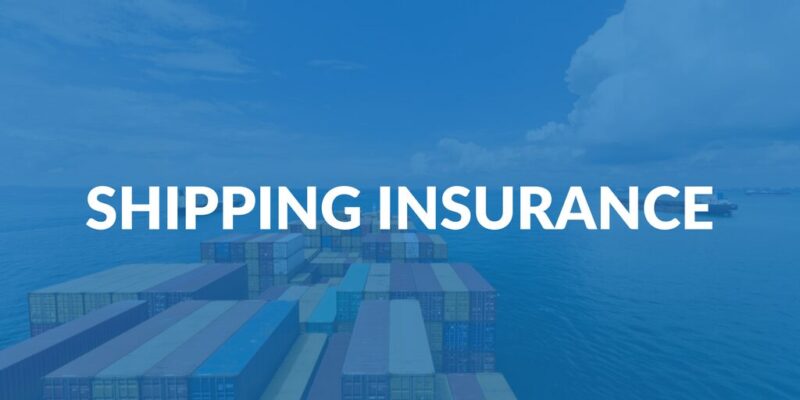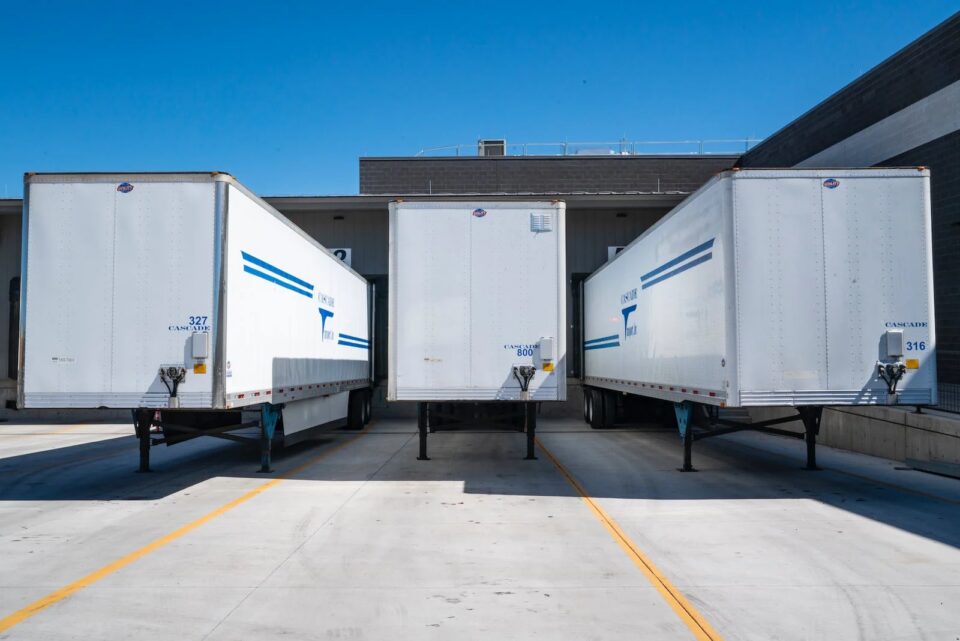From the delivery of essential goods to households to the transportation of products across continents for multinational corporations, shipping is the silent engine that drives global commerce. Within this vast web of logistics and transport, the concept of shipping insurance emerges as an invaluable player. Much like any other insurance, shipping insurance safeguards against unforeseen mishaps, offering coverage for goods in transit and ensuring that both the sender and recipient are protected against potential losses.
This article studies the significance of shipping insurance, delineating the scenarios where it becomes indispensable. We aim to guide shippers in making informed decisions, ensuring that their valuable items are shielded against potential perils. With the right knowledge, anyone can confidently and securely ship their valuable items to their desired destination.
What is Shipping Insurance?

Shipping insurance provides a safety net for goods in transit, covering them against potential damage, loss, or theft while they’re being transported from the sender to the recipient. It acts as a financial assurance, such as when shipping to US from Canada, ensuring that if the unexpected occurs, the financial value of the shipped items is protected. Much like how home insurance covers potential hazards to a dwelling or car insurance offers protection against vehicular accidents, shipping insurance specifically focuses on the risks associated with the transportation of goods. Shipping insurance is distinct in its emphasis on safeguarding items during their journey, regardless of the mode of transport.
Importance of Shipping Insurance
Protection Against Loss or Damage
Whether goods face risks like being damaged due to rough handling, lost in a logistical mix-up, or stolen during their journey, insurance ensures that the sender can claim compensation. This protection becomes especially significant when transporting fragile or high-value items, where potential losses could be considerable.
Peace of Mind for Senders and Recipients
Senders can dispatch items with the confidence that, should something go wrong, they’re not left to bear the entire brunt of the mishap. Recipients can rest assured knowing that their awaited goods have an added layer of protection, and in case of unforeseen issues, remedies are available.
Mitigate Risks Associated with Transport
In global commerce, goods often travel vast distances across multiple modes of transport and through varied terrains, multiplying the risk factor. Shipping insurance serves as a bulwark against the many challenges posed by international transportation. From weather disturbances affecting sea freight to logistical issues at border checkpoints, insurance helps businesses cope with these complexities without the constant fear of financial setbacks.
When Should You Consider Shipping Insurance?

High-Value Shipments
Whether it’s a luxury timepiece, heirloom jewelry, or a limited-edition collectible, items with significant monetary or sentimental value are prime candidates for shipping insurance. The potential loss or damage to such items not only results in financial setbacks, but also emotional distress, making insurance coverage essential.
Fragile Items
Certain goods, by their very nature, are prone to damage during transit. Items like glassware, ceramics, artworks, or delicate instruments can easily get harmed due to rough handling or unfavorable conditions. Insuring these fragile shipments becomes imperative to protect against potential breakage or damage.
International Shipments
Different countries have varying customs restrictions, handling procedures, and potential risks. Given the complexities of cross-border logistics and the added distance traveled, international shipments need to be insured for optimum protection.
Bulk Shipments
When transporting large quantities of goods, even if individual items aren’t high-value, the aggregate value can be substantial. The sheer volume of items in bulk shipments increases the potential risk factor, making insurance a wise consideration to protect against potential losses.
Time-Sensitive Shipments
For items that are bound by tight deadlines, like event-specific goods or perishable items, delays can be costly. Time-sensitive shipments, when delayed or misplaced, can lead to missed opportunities or additional expenses. Insuring such shipments provides a safeguard against the financial implications of unforeseen delays.
Inconsistent Destination Points
Certain destinations, perhaps due to logistical challenges or a history of mishandling, are notorious for lost or damaged goods. When shipping to these areas, taking precautions by opting for insurance mitigates potential risks and ensures the safe arrival of shipments.
How to Make a Claim

Documentation
It’s imperative to retain all pertinent receipts, take clear photos of the item before shipping, and maintain detailed descriptions. This comprehensive documentation not only validates the claim, but also helps in determining the item’s value and condition prior to shipment.
Process
Initiating a claim typically involves notifying the carrier or insurance provider about the damage or loss. This is followed by filling out claim forms, providing the required documentation, and giving a detailed account of the event. Cooperation and prompt communication can expedite the process, ensuring swift resolution.
Time Limits
Most insurance providers stipulate a specific time frame within which claims must be lodged post the event or the discovery of damage. Claims made beyond this period may be rendered invalid or face delays.
Selecting the Right Shipping Insurance Provider

Factors to consider include the provider’s reputation, customer reviews, responsiveness to claims, and the comprehensiveness of their coverage. It’s important to understand the distinctions between carrier-provided insurance and third-party providers: while the former is often integrated into the shipping service offered by carriers like FedEx or UPS, the latter operates independently and may offer more flexibility or specialized coverage. Each common carrier has its own set of insurance offerings, with varied terms, coverage limits, and premium rates. By comparing these elements and aligning them with one’s shipping needs, shippers can secure the most suitable protection for their goods in transit.
Shipping insurance protects both the tangible value and emotional worth of goods in transit. As the complexities of global logistics continue to evolve, making informed choices about insurance can ensure a secure, hassle-free shipping experience. In the vast expanse of global commerce, armed with the right knowledge, shippers can ensure their precious cargo’s safety at every step of the journey.

